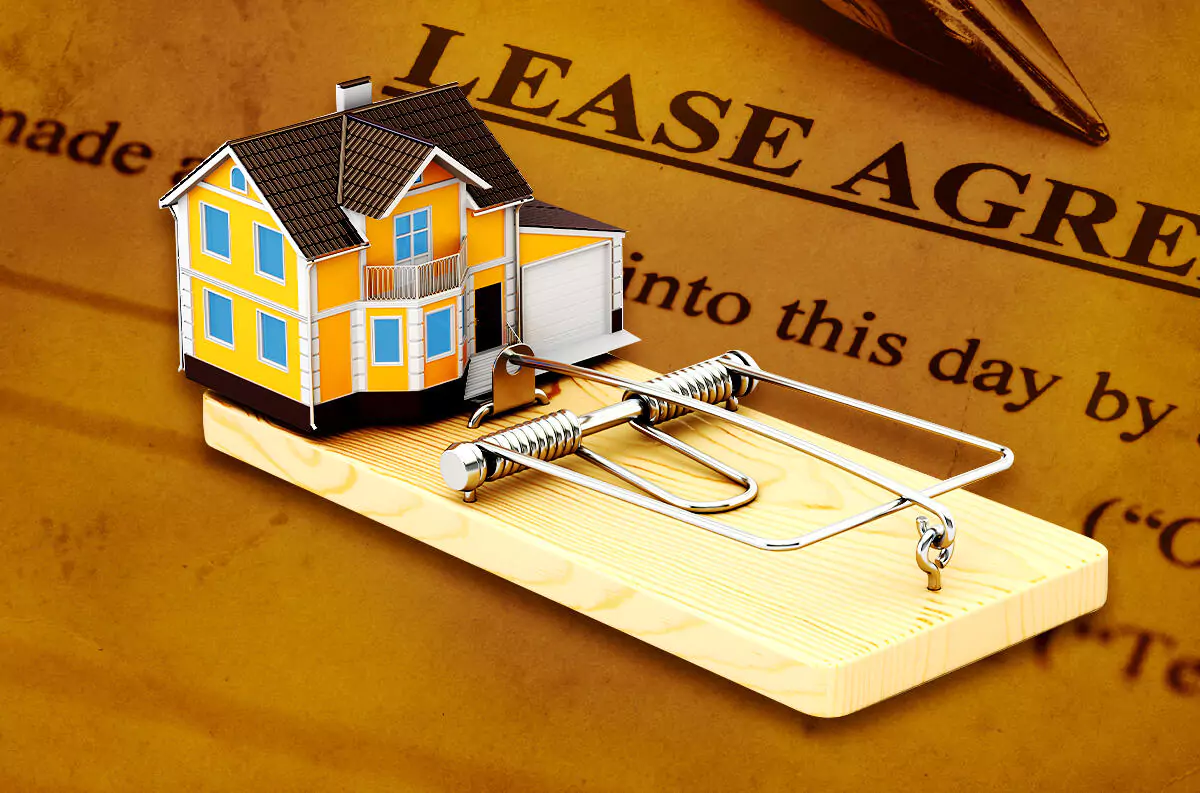
Homeownership scams have been around for years, but they seem to be on the rise in 2024. These scams can be very costly and may lead to the loss of your hard-earned savings. This article will discuss some of the most common homeownership scams and how to protect yourself from them.
Common Homeownership Scams
As the housing market continues to heat up, so do the number of scams targeting potential homeowners. Scammers are using a variety of tactics to trick people into handing over their hard-earned money, often for properties that don’t exist or that they don’t have the right to sell. Here are some of the most common homeownership scams and how to avoid them:
- Fake Listings: Scammers may create fake listings for homes that do not exist or that are significantly overpriced. They may also use stolen photos of real homes to make their listings more appealing.
- Pre-Foreclosure Scams: Scammers may contact you and claim that they are the owner of a home that is about to be foreclosed on. They may offer to sell you the home at a discounted price. However, the home may not actually be in foreclosure or may have other problems.
- Title Theft Scams: Scammers may steal the title to a home and then sell it to you. Once you have purchased the home, you may find that you do not actually own it and that the true owner is coming to reclaim it.
- Mortgage Fraud: Scammers may help you qualify for a mortgage that you cannot afford, and then they may pocket the difference between the amount you borrow and the amount you repay. This can lead to foreclosure and financial ruin.
- Escrow Scams: Scammers may contact you and claim to be representing an escrow company. They may ask you to send them money to hold in escrow until the purchase of your home is complete. However, they may never actually deposit the money into escrow and may disappear with your money.
- Home Inspection Scams: Scammers may pose as home inspectors and offer to inspect your home before you purchase it. They may then provide you with a falsified inspection report that fails to disclose any major problems with the home.
- Contract Scams: Scammers may use deceptive or misleading language in contracts to trick you into agreeing to terms that are unfavorable to you. Be sure to read all contracts carefully before signing them.
- Home Warranty Scams: Scammers may offer you a home warranty that they claim will cover repairs to your home for a certain period of time. However, the warranty may be worthless or may not cover the types of repairs you need.
- HOA Scams: Scammers may pose as representatives of your homeowners association (HOA) and contact you to demand payment for fees or fines. Be sure to verify the identity of anyone who contacts you claiming to be from your HOA before paying any money.
- Home Equity Scams: Scammers may offer to help you tap into the equity in your home by refinancing your mortgage or taking out a home equity loan. However, they may charge you excessive fees or interest rates, or they may not actually provide you with the loan proceeds.
By being aware of these common homeownership scams, you can help protect yourself from losing your hard-earned money.
How To Protect Yourself From Homeownership Scams on 2024
Homeownership is a dream for many people, but it can also be a target for scammers. In 2024, there are more ways than ever for scammers to take advantage of people who are looking to buy, sell, or renovate their homes. Here are some tips to help you protect yourself from homeownership scams:
Do your research
- Before you start looking for a home, do your research and learn about the process. This will help you understand what to expect and avoid being taken advantage of.
- Check online reviews of real estate agents, lenders, and other professionals. This can help you find reputable people to work with.
- Don’t be afraid to ask questions. If something doesn’t seem right, don’t be afraid to ask questions.
Beware of high-pressure sales tactics
- If a salesperson is pressuring you to buy or sell a home, be suspicious. Take your time to make a decision and don’t feel obligated to buy or sell a home right away.
- Don’t sign anything that you haven’t read and understood. Take your time to read any contracts or documents before you sign them.
- Don’t give out personal information over the phone or email. Scammers can use this information to steal your identity or commit fraud.
Use a reputable real estate agent
- A real estate agent can help you find a home that meets your needs and budget. They can also negotiate on your behalf and help you avoid scams.
- Make sure that the real estate agent is licensed and insured. You can check this information with your state’s real estate commission.
Get a home inspection
- A home inspection can help you identify any potential problems with a home before you buy it. This can help you avoid expensive repairs down the road.
- Make sure that the home inspector is licensed and insured. You can check this information with your state’s home inspector’s licensing board.
Don’t pay for anything upfront
- Never pay for a home before you have seen it in person and had it inspected.
- Don’t pay for any fees or commissions before you have a signed purchase agreement.
- If a seller asks for money upfront, be suspicious. This could be a sign of a scam.
Beware of escrow scams
- Escrow is a process used to hold money and documents until a real estate transaction is complete.
- Never send money to an escrow company that you don’t know or trust.
- Make sure that the escrow company is reputable and insured.
- You should receive a copy of the escrow agreement before you sign it.
Beware of home repair scams
- Get multiple estimates for any home repairs you need done.
- Read the reviews of any companies you are considering.
- Don’t pay for any repairs until the work is complete and you are satisfied with it.
Beware of title theft scams
- Make sure that the title to the home is clear of liens and other problems before you buy it.
- Get title insurance to protect yourself from title theft.
- Don’t give out any personal information about the home’s title to anyone you don’t know or trust.
Report scams
- If you think you have been scammed, report it to the Federal Trade Commission (FTC).
- You can also report the scam to your state’s attorney general’s office.
- Reporting scams can help law enforcement bring the scammers to justice and protect other people from being scammed.
Where to Report Homeownership Scams
There are several places where you can report homeownership scams. Here are a few of the most common:
- The Federal Trade Commission (FTC): The FTC is a government agency that protects consumers from fraud and other unfair business practices. You can file a complaint with the FTC online or by phone.
- Your state attorney general’s office: Each state has an attorney general’s office that is responsible for protecting consumers. You can file a complaint with your state attorney general’s office online or by phone.
- The Internet Crime Complaint Center (IC3): The IC3 is a partnership between the FBI and the National White Collar Crime Center. You can file a complaint with the IC3 online or by phone.
- The Better Business Bureau (BBB): The BBB is a non-profit organization that collects information on businesses and provides dispute resolution services. You can file a complaint with the BBB online or by phone.
- The National Association of Realtors (NAR): The NAR is a professional organization for real estate agents. You can file a complaint with the NAR online or by phone.
In addition to filing a complaint with one of these agencies, you should also report the scam to the website where you found the listing. This will help to prevent other people from being scammed.
Here are some additional tips for reporting homeownership scams:
- Be as specific as possible when describing the scam. The more information you can provide, the better the chances of catching the scammers.
- Save any evidence you have of the scam, such as emails, text messages, or voicemails. This evidence can be helpful in your investigation.
- Be patient. It may take some time for your complaint to be investigated and for action to be taken against the scammers.








Be the first to comment